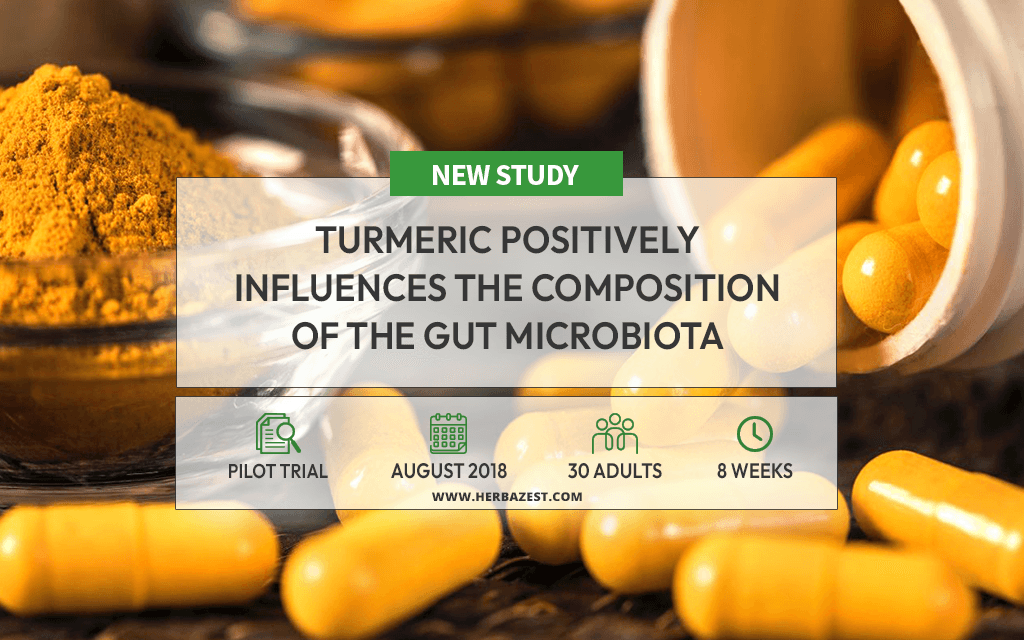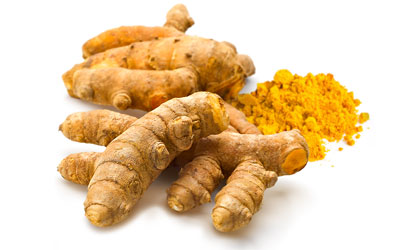Gut microbiota or intestinal flora consists of various species of microorganisms that inhabit the human digestive tract. Numerous studies have linked its role to various key health benefits, including regulating digestion, strengthening immunity, improving mental health, and more.1
Turmeric, also called curcuma, is one of the most powerful medicinal herbs, whose main actions are attributed to its active component, curcumin. Because black pepper's piperine is known to enhance curcumin absorption, both are commonly used together for supplementary or culinary purposes.
The aim of this study was to compare the effects of turmeric- and curcumin-containing tablets on human gut microbiota.
The Study
This randomized pilot trial was conducted at the University of California-Davis, Sacramento, California. It involved 30 healthy adults between the ages of 19 and 58. They were randomly divided into three groups with the following regimens:
The placebo group received similar in size, shape, and color placebo tablets.
The turmeric group received 1,000 mg of turmeric root plus 1.25 mg black pepper-derived extract of piperine alkaloid.
The curcumin group received 1,000 mg of curcumin plus 1.25 mg black pepper-derived extract of piperine alkaloid.
Participants were instructed to take three tablets twice a day with food. They attended follow-up visits at the beginning of the study as well as weeks 4 and 8.
Out of all participants, 15 provided stool samples that were used for analysis.
The Results
In terms of the number of bacterial species, the curcumin group showed a 69% increase (127 at baseline vs 215 after treatment). The turmeric group had a modest increase (156 vs 167), while the placebo group showed a 15% reduction in bacterial species (175 vs 149).
The curcumin group also showed higher average alpha diversity in comparison to the other two groups. Alpha diversity is the average species diversity in a specific habitat.
What Does this Mean?
This study adds to an already impressive list of turmeric's health benefits by providing evidence of the favorable effects of turmeric and curcumin on human gut microbiota. While turmeric has been shown to offer prebiotic benefits, curcumin alone displayed prebiotic-like actions.
Researchers also observed that the changes of gut flora after turmeric and curcumin treatments were not consistent among the participants, suggesting participant-specific effects. More studies are needed to further explore turmeric's uses for human health, particularly for disease prevention and treatment.
Other herbs that have prebiotic properties include bananas, garlic, oats, and apples.
Sources
- Journal of Evidence-Based Integrative Medicine, Effects of Turmeric and Curcumin Dietary Supplementation on Human Gut Microbiota: A Double-Blind, Randomized, Placebo-Controlled Pilot Study, 2018
Footnotes:
- Microbiome. (2019). Gut Microbiota, Dietary Phytochemicals, and Benefits to Human Health. Retrieved October 22, 2020 from https://link.springer.com/article/10.1007/s40495-019-00196-3





